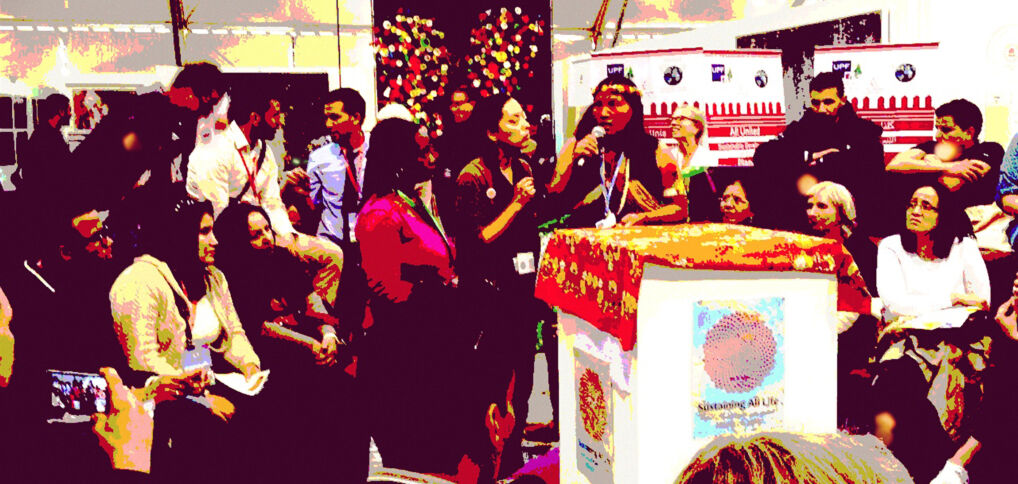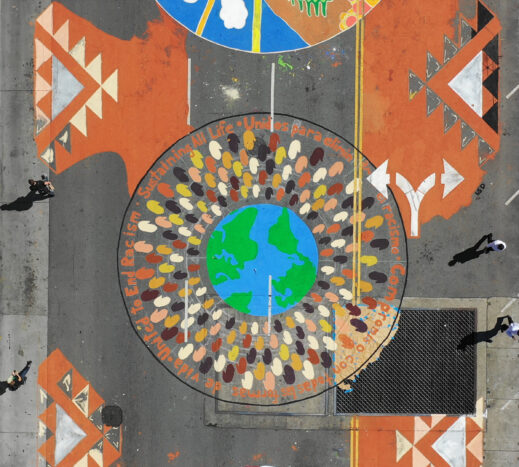
View this resource
as a PDF >>
***
View this resource
in French >>
***
View this resource
in Spanish >>
Oppression and exploitation have become embedded and institutionalized in our societies.
Classism plays a pivotal role in all oppressions. We define classism as the systematic mistreatment of the vast majority of the world’s people (poor and working class) by a small minority of the world’s people (the owning class).
This system allows the owning class to amass great wealth from the labor of the working class and from resources extracted from the land.
Some studies estimate that the richest 1% of adults own 48% of personal wealth, and that the richest 10% of adults own 85%. The bottom half of the world’s adult population owns 2% of global wealth. The owning class controls the resources and makes decisions that favor them financially and that perpetuate capitalism.
The above is also true of nations. A few countries dominate the poorer countries and amass wealth at the expense of the majority of the world’s people—classism on the international level.

Classism, as manifested in capitalism, is the root cause of environmental degradation—profit is pursued no matter the cost to the earth and its inhabitants. Extractive industries have done great damage to the land and to those working in these industries. They have failed to use measures that (1) safeguard the well-being of workers and those living nearby, (2) minimize contamination from extractive and industrial processes, (3) restore the land after extraction, and (4) cease operations when dangerous consequences are revealed. Instead, in order to maximize profits, the industries cover up information about hazardous practices and fight efforts to hold them accountable.
Capitalism also fosters certain assumptions that have led to environmental destruction. Among these are (1) that continued economic growth is essential, (2) that capitalism is the best and only possible system, and (3) that all problems, including the climate crisis, can be solved by making the “solutions” profitable for corporations and the owning class. These assumptions are unawarely accepted because they are so thoroughly ingrained in many cultures. Thus, challenging them is an important part of the work we have to do.
Past attempts by nations or peoples to organize an economic system different from the capitalist model have been severely attacked or corrupted from within by classism. Existing economies that reject capitalism are strongly discredited and undermined by the dominant class society.
As a result, there is no broad understanding of class oppression. This absence has left our societies vulnerable to being divided by racism, anti-Semitism, sexism, and other oppressions. People are led to blame others for the overall disfunction and inequities, instead of blaming the system. Often other oppressed groups (and sometimes progressive groups) blame the working class, accusing workers (who need their jobs) of standing in the way of ending the unfair system.
Indigenous people, who attempt to live outside of a class-based model, are heavily targeted by genocidal policies that strip away their sovereignty and undermine their attempts to live sustainably in a classless society.

Another effect of classism is that the perspectives of people from poor and working-class communities have generally been marginalized or excluded in the mainstream environmental movement in the globally dominant nations. At the same time, middle-class and owning class people have been overly represented in the leadership. Some of the issues historically prioritized by the environmental movement (such as species and land conservation) have mostly served owning class interests. These issues may be perceived to be far removed from the lives of those who are struggling to meet basic needs like housing, food, and health care. This unchallenged classism has made the movement unwelcoming to those who do not have access to power, privilege, or material resources. In addition, typical owning-class attitudes of entitlement, arrogance, and moral superiority make it very challenging for those exploited by the class system to participate in the movement.
Healing from the hurts of class oppression is not quick or easy work. Class divisions are deep. We must be open to healing the hurts that foster these divisions and our separation from each other. It is necessary to do this in order to build a united movement. Many of us resist emotional work. We may feel like there isn’t time. Or we may feel that we have only been able to succeed in life by not showing anyone how much we have been hurt. We may feel ashamed of or embarrassed by our feelings. We may have survived by numbing ourselves to the damage we carry and assuming we will never be free of it. We may feel it would be unbearable to look at and to feel those feelings again. Perhaps this is because we have had no opportunity to tell our stories or have not been treated well when we have tried to tell them. We can free ourselves from any feelings of isolation, fear, ignorance, humiliation, victimization, rage, indignation, powerlessness, superiority, entitlement, or contempt that are installed by our society on each of us regardless of our class background.
In Sustaining All Life/United to End Racism we have learned that we can heal from how we have been hurt by classism and internalized classism (the negative messages about ourselves and the world around us that we have internalized and then acted out as though they were accurate). Doing this healing work allows us to think about how classism is acted out within the environmental movement and the broader society, and how it can be addressed and resolved. We also gain a deeper understanding of how capitalism has damaged all of us. Healing from the effects of classism is not a substitute for taking action to replace capitalism, but it is a vital part of the work to end classism and capitalism.
By releasing distressed feelings connected to class in a supportive network, we can grow evermore united, hopeful, thoughtful, joyful and committed. This will strengthen us as we build our movements.


